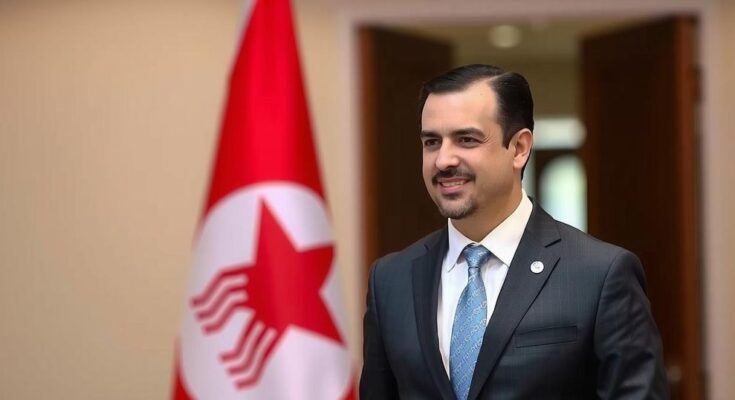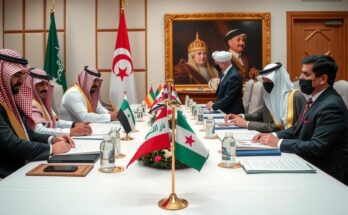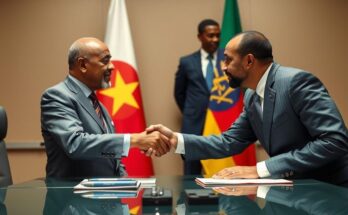General Joseph Aoun has been elected as Lebanon’s new president, concluding a more than two-year power vacuum. His election reflects a compromise among political factions and aims to address Lebanon’s ongoing economic crisis while maintaining stability. Aoun’s military background positions him as a critical leader in navigating the complex political challenges ahead. International support for his presidency has been largely positive, emphasizing the need for reforms and unity.
On Thursday, General Joseph Aoun was elected Lebanon’s 14th president, marking a significant milestone for the nation following a prolonged political deadlock that lasted over two years. His election signals a critical moment as Lebanon faces multifaceted challenges, including an enduring economic crisis and the devastation caused by Hezbollah’s prior conflict with Israel. General Aoun’s background as the commander of the Lebanese Armed Forces and his role in stabilizing southern Lebanon positions him as a pivotal figure in the country’s future.
Securing the presidency with 99 votes in the second parliamentary session, Aoun’s election reflects substantial compromises made by various political factions to overcome previous electoral failures. His predecessor, Michel Aoun, whose term ended in October 2022, was also a Maronite Christian, adhering to Lebanon’s National Pact. General Aoun expressed his resolve to fortify the armed forces and lead reconstruction efforts following the war’s aftermath while maintaining a stance of neutrality in Lebanon’s complex political landscape.
International and regional reactions to Aoun’s election were largely optimistic. Arab leaders from Saudi Arabia and Qatar congratulated him and underscored their support for Lebanon’s stability and recovery. French President Emmanuel Macron and other Western leaders expressed confidence in Aoun’s leadership as an agent of reform while emphasizing the importance of addressing Lebanon’s pressing economic challenges. As Aoun steps into this role, he must navigate a path towards unifying parliament and instigating reforms crucial for restoring stability in Lebanon, which has been rated as facing one of the worst economic crises in modern history.
Significant support for Aoun’s presidency came from prominent political entities, highlighting the narrow alignment between opposing factions, including Hezbollah and the Amal Movement, and aligning with domestic and international efforts aimed at restoring governance and stability. Nevertheless, challenges remain, notably the influence of political factions that may oppose a consolidated government.
Finally, the success of General Aoun’s presidency will depend on his ability to cultivate cooperation among Lebanon’s diverse political factions and prioritize national interests to steer the country towards recovery and stability in these trying times.
Lebanon has endured prolonged political stagnation and economic turmoil, exacerbated by failed leadership and factional divisions. The election of a new president is seen as a pivotal moment that could bridge these divides and encourage governance. General Joseph Aoun brings a military background and previous successes in maintaining order and neutrality under challenging circumstances, positioning him as a capable leader in restoring stability. The influential backing of various political allies and international support underscores the potential for a renewed governmental structure capable of navigating Lebanon’s substantial challenges, including economic reform and national unity.
The election of General Joseph Aoun as Lebanon’s president carries both hope and expectation for the nation’s future. His leadership is rooted in military experience and a commitment to restoring stability and unity amidst a backdrop of complex political dynamics and a dire economic crisis. While international and regional support appears robust, Aoun’s ability to forge consensus and implement necessary reforms will ultimately determine Lebanon’s recovery trajectory. The unfolding political landscape will require dexterity, collaboration, and a shared vision among Lebanon’s diverse factions.
Original Source: www.arabnews.com




